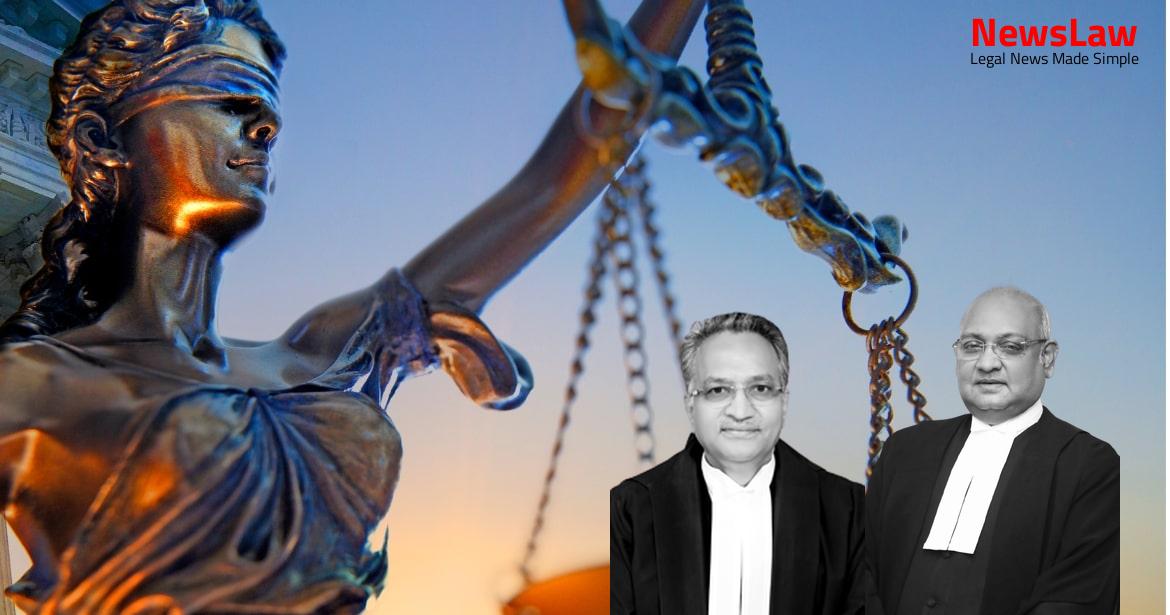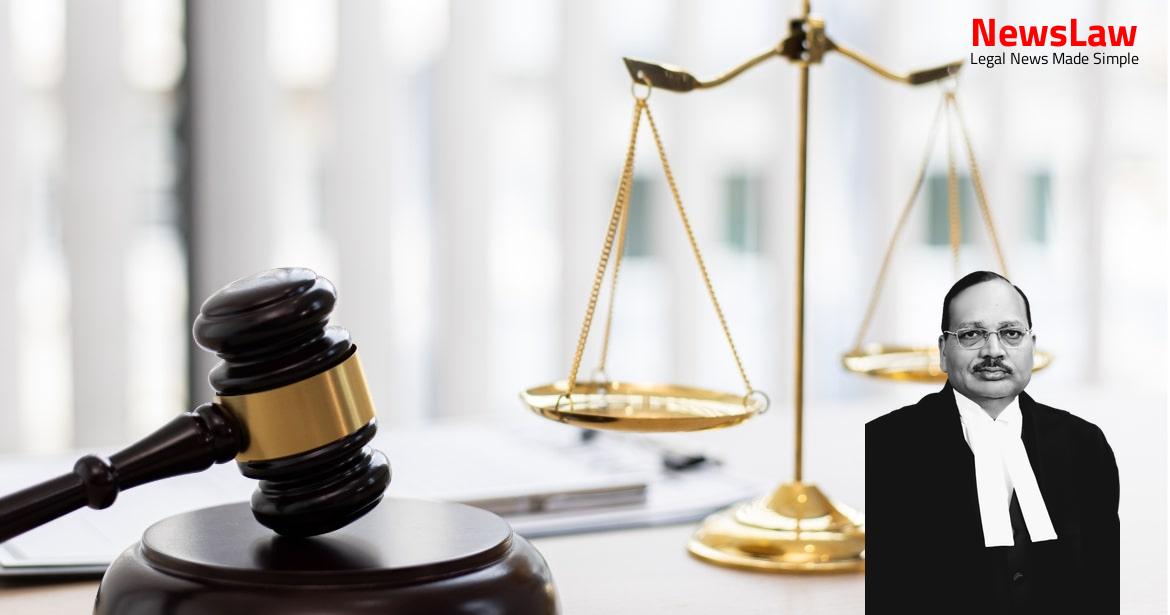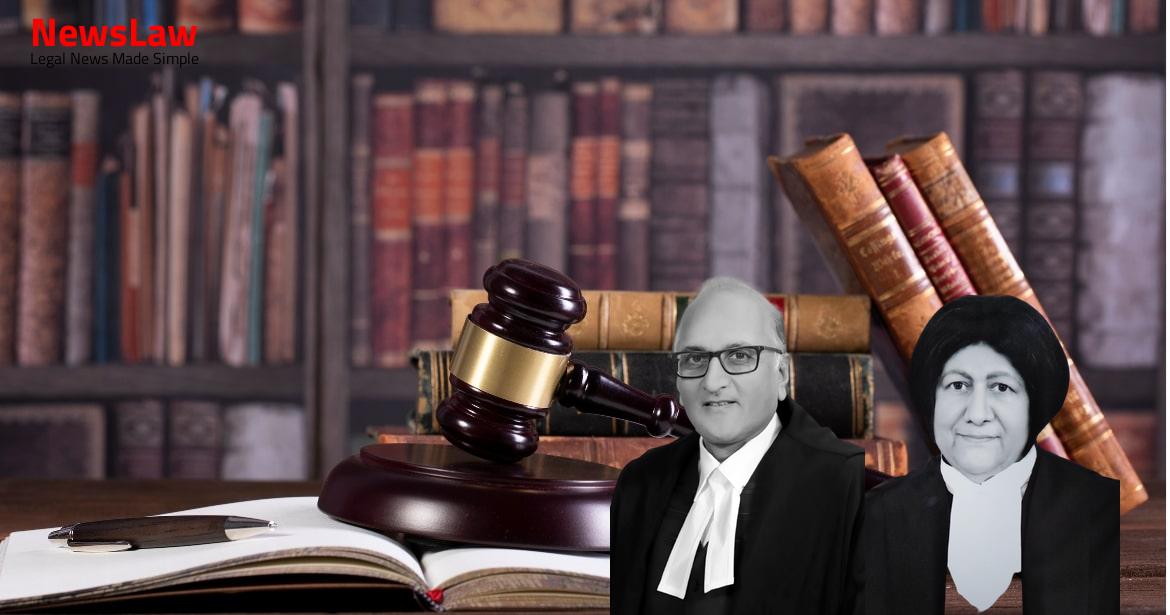Explore the court’s deep dive into the interpretation of provisions in the 1946 Act regarding the jurisdiction of the Central Bureau of Investigation. Navigating through a corruption case involving complex land acquisition issues, the court’s legal analysis provides clarity on the powers and scope of investigation. Stay informed on the nuances of the law in cases of alleged criminal conspiracy and examine how the court’s decision paves the way for justice in such matters. #LegalAnalysis #Corruption #CBI
Facts
- The appeal arises from a judgment by the High Court of Patna in a criminal case related to a payment made by the CEO of BRBCL, Nabinagar to Shri Gopal Prasad Singh despite land ownership issues.
- The payment of Rs.2,07,84,583/- was made via a cheque issued by Bhartiya Rail Bijlee Co. Ltd.
- The case involves allegations of criminal conspiracy and wrongful loss to BRBCL, with offences under IPC and Prevention of Corruption Act being prima facie established.
- The FIR was challenged by the appellant, an IAS officer, on grounds of lack of criminal offence disclosure and absence of prior state government consent for CBI investigation.
- The High Court rejected the appellant’s arguments, allowing the case to proceed.
- The case reveals corruption in land acquisition for BRBCL’s power plant in Nabinagar, involving false documents and fraudulent land transfers.
- The notification granting permission to DSPE for jurisdiction in Bihar in specified cases was cited as legal basis for the investigation.
- The case further exposes discrepancies in land ownership claims and land possession issues during the acquisition process.
- The conspiracy involved multiple individuals including the CEO of BRBCL and the District Magistrate of Aurangabad.
- Instructions were given for compensation payment to Shri Gopal Prasad Singh despite land ownership disputes.
- BRBCL is considered an affiliate or associate of NTPC Ltd. and the Railways.
- The criminal conspiracy in question was determined to have been hatched in Delhi.
- The CBI was found competent to register an FIR in Delhi and conduct further investigation.
- A State Government of Bihar notification from 1996 granted consent to members of the DSPE to exercise powers and jurisdiction under the 1946 Act in Bihar for the specified offences.
Also Read: Land Acquisition Challenges for Integrated Infrastructure Project
Issue
- Core issue for consideration: Interpretation of proviso in notification dated 19.2.1996
- Issue: Whether proviso hinders DSPE officials from registering FIR and investigating specified offences in NCT of Delhi
- Conflict: Application of 1946 Act to offences within Union Territory
Also Read: Legal Analysis of Compulsory Retirement under Rule 135
Arguments
- General consent given by the State of Bihar is conditional for exercise of powers by officials of the DSPE.
- The interpretation of the notification dated 19.2.1996 by the High Court is considered flawed.
- Any other view than the one presented may impact the federal structure of India.
- The first part of the notification states that consent is required for investigating offences related to the Government of India or entities controlled by it.
- The proviso in the notification cannot assist the petitioner when public sector employees from Bihar are involved in a conspiracy impacting a government company.
- No individual consent is required under Section 6 of the D.S.P.E. Act in such cases.
- The alleged acts of commission and omission of the appellant in Bihar do not change the nature of the crime committed to defraud the Government undertaking (BRBCL) in Delhi.
- The requirement of consent of the State is necessary when the specified offences under investigation occur outside the Union Territory.
- The Delhi High Court and Patna High Court have upheld the view that State consent is required for such cases.
- The appellant argues that prior unambiguous consent of the State is essential for the DSPE officials to act.
- The appellant claims protection under Section 79 of the IPC as the alleged act was done in an official capacity after due administrative evaluation.
Also Read: Analysis of Legal Issues in Property Dispute Case
Analysis
- The analysis focuses on the interpretation of the provisions of the 1946 Act in relation to the investigation of specified offences committed within the Union Territory.
- The argument is made that the consent of the State of Bihar is not required for the Central Bureau of Investigation (CBI) to investigate offences committed in Delhi, even if one of the accused is a resident or public servant of Bihar.
- The High Court’s decision to reject the challenge to the investigation by the appellant is upheld based on the jurisdiction of the CBI to investigate the alleged offences in Delhi.
- The role of the special police force (DSPE) in investigating specified offences in Union Territories is emphasized, regardless of the residence or status of the accused.
- The discrimination in requiring consent of the State Government for investigation based on the accused’s status is criticized as contrary to the principle of equal treatment under the law.
- The analysis also touches upon the need for consent from the State Government for the application of the Delhi Act, as mandated by the provisions of the 1946 Act.
- The general consent provided by the State of Bihar is deemed sufficient for the investigation of offences by the CBI, even if the accused is a public servant employed by the Bihar government.
- The jurisdiction of DSPE to investigate specified offences in Union Territories is reaffirmed, irrespective of the accused’s residence or employment location.
- Section 5 of the 1946 Act allows for the extension of powers and jurisdiction of the special police establishment to other areas in a State.
- A member of the special police force, when their powers are extended to another area, can function as a police officer in that area.
- Consent of the State Government is essential for a member of the special police force to exercise powers and jurisdiction in any area within a State.
- In cases where specified offences are committed within a Union Territory, consent of the State Government is not required for investigation by the special police force.
- No consent is needed from a State Government if the offences are related to funds of the Government of India through its agent, such as a government company registered in a Union Territory, even if individuals involved are connected to a different State.
- The High Court clarified that in such cases, no consent from the State Government is necessary for investigation.
- The Constitution Bench in Subramanian Swamy case held Section 6A(1) of the Act as invalid and violative of Article 14 of the Constitution.
- The Court emphasized the need for reasonable suspicion or allegations of an offense for a public servant to be investigated.
- The challenge to the provision was dismissed by the Court after verifying that all the necessary particulars were provided as per Section 6 of the Delhi Act.
- Sections 3, 5, and 6 of the Act were examined, with Section 6 specifically requiring consent from the State Government for the Special Police Establishment’s powers and jurisdiction.
- The essence of police investigation was described as skillful inquiry and evidence collection without forewarning potential culprits.
- The decisions relied upon by the parties do not pertain to the question under consideration about the effect of the proviso in the notification dated 19.2.1996.
- The question of whether a prior sanction of the State of Bihar is necessary concerning the appellant can be considered by the Court of competent jurisdiction in accordance with the law.
Decision
- The appeal has been dismissed.
- Any pending interlocutory applications have been disposed of.
Case Title: KANWAL TANUJ Vs. THE STATE OF BIHAR (2020 INSC 357)
Case Number: Crl.A. No.-000414-000414 / 2020



